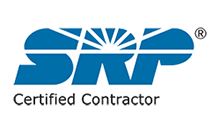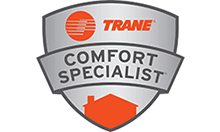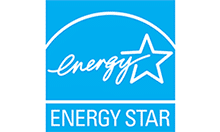Introduction
Definition of HVAC
HVAC stands for heating, ventilation, and air conditioning. It refers to the technology used for controlling the indoor environment, including temperature, humidity, and air quality, to ensure comfort and safety. Regular maintenance of HVAC systems is crucial for maintaining energy efficiency. By keeping the system in optimal condition, it can operate at its highest efficiency, reducing energy consumption and lowering utility costs. Additionally, regular maintenance helps to prolong the lifespan of the HVAC equipment, preventing costly repairs and replacements. Overall, understanding the definition of HVAC and the importance of regular maintenance is essential for maximizing energy efficiency and ensuring a comfortable indoor environment.
Importance of energy efficiency
Energy efficiency is crucial for both the environment and our wallets. By ensuring regular HVAC maintenance, we can optimize the energy usage of our heating, ventilation, and air conditioning systems. This not only reduces our carbon footprint but also helps us save on energy bills. Regular maintenance allows us to identify and fix any issues that may be causing inefficiencies in our HVAC systems, such as clogged filters or faulty components. Additionally, well-maintained HVAC systems have a longer lifespan, reducing the need for frequent replacements and further contributing to energy conservation. Therefore, it is essential to prioritize regular HVAC maintenance to achieve optimal energy efficiency and contribute to a sustainable future.
Purpose of the article
The purpose of this article is to highlight the importance of regular HVAC maintenance in achieving energy efficiency. HVAC systems play a crucial role in maintaining a comfortable indoor environment, but they can also consume a significant amount of energy. By conducting regular maintenance, such as cleaning filters, checking for leaks, and optimizing system performance, homeowners and businesses can ensure that their HVAC systems operate efficiently, leading to reduced energy consumption and lower utility bills. Additionally, regular maintenance helps prolong the lifespan of HVAC equipment, reducing the need for costly repairs or replacements. This article aims to educate readers about the benefits of regular HVAC maintenance and encourage them to prioritize this essential aspect of energy efficiency.
Understanding HVAC Systems
Components of an HVAC system
Regular HVAC maintenance is crucial for ensuring energy efficiency in HVAC systems. One of the key aspects of maintaining an HVAC system is understanding its components. An HVAC system is composed of various components, including the furnace, air conditioner, heat pump, ductwork, and thermostat. Each of these components plays a vital role in the overall functioning of the system. Regular maintenance of these components involves cleaning, lubricating, and inspecting them to ensure they are in optimal condition. By regularly maintaining the components of an HVAC system, homeowners can improve energy efficiency, extend the lifespan of the system, and minimize the risk of costly repairs. Therefore, it is essential to prioritize regular HVAC maintenance to achieve maximum energy efficiency and comfort in your home.
How HVAC systems work
HVAC systems, which stands for heating, ventilation, and air conditioning, play a crucial role in maintaining a comfortable and healthy indoor environment. Understanding how HVAC systems work is essential for homeowners and building managers to ensure their efficient operation. These systems work by controlling the temperature, humidity, and air quality within a space, providing optimal comfort for occupants. HVAC systems consist of various components, including a furnace or heat pump, air conditioner, ductwork, and thermostat. The furnace or heat pump heats the air during colder months, while the air conditioner cools it during warmer months. The ductwork distributes the conditioned air throughout the building, and the thermostat allows users to control and adjust the settings. Regular maintenance of HVAC systems is vital to ensure their energy efficiency. By scheduling routine inspections, cleaning, and servicing, potential issues can be identified and resolved promptly, preventing energy wastage and costly repairs. Additionally, proper maintenance helps extend the lifespan of the HVAC system, reducing the need for premature replacements. In conclusion, understanding how HVAC systems work and prioritizing regular maintenance is key to achieving optimal energy efficiency and ensuring a comfortable indoor environment.
Types of HVAC systems
There are several types of HVAC systems available in the market today. The most common types include central air conditioning systems, heat pumps, and ductless mini-split systems. Central air conditioning systems are the most popular choice for residential and commercial buildings as they provide efficient cooling throughout the entire space. Heat pumps are another popular option that can both cool and heat a space, making them versatile and energy-efficient. Ductless mini-split systems are a good choice for homes or buildings without existing ductwork, as they provide zoned cooling and heating. Regardless of the type of HVAC system, regular maintenance is crucial to ensure optimal energy efficiency and performance.
Benefits of Regular HVAC Maintenance
Improved energy efficiency
Regular HVAC maintenance plays a crucial role in improving energy efficiency. By regularly inspecting and cleaning the HVAC system, potential issues can be identified and resolved before they lead to energy waste. This includes checking and replacing air filters, lubricating moving parts, and optimizing system settings. A well-maintained HVAC system operates more efficiently, using less energy to achieve the desired temperature. As a result, homeowners can enjoy lower energy bills and contribute to a greener environment. Additionally, regular maintenance helps prolong the lifespan of the HVAC system, reducing the need for costly repairs or premature replacement. Therefore, investing in regular HVAC maintenance is essential for maximizing energy efficiency and ensuring optimal performance.
Extended lifespan of HVAC system
Regular HVAC maintenance plays a crucial role in extending the lifespan of your HVAC system. By ensuring that your system is properly maintained, you can prevent unnecessary wear and tear on its components, which can lead to costly repairs or even the need for a complete replacement. Maintenance tasks such as cleaning or replacing filters, checking and adjusting the refrigerant levels, and inspecting electrical connections can help keep your HVAC system running efficiently and effectively. This not only improves energy efficiency but also reduces the strain on the system, allowing it to operate optimally for a longer period of time. Investing in regular HVAC maintenance not only saves you money in the long run but also ensures that your system continues to provide reliable heating and cooling throughout its extended lifespan.
Enhanced indoor air quality
Enhanced indoor air quality is a crucial aspect of regular HVAC maintenance for energy efficiency. When HVAC systems are not properly maintained, they can become a breeding ground for dust, dirt, and other pollutants. These contaminants can circulate throughout the indoor environment, leading to poor air quality and potential health issues for occupants. However, with regular maintenance, including filter replacements, duct cleaning, and system inspections, HVAC systems can effectively remove these pollutants and provide clean, fresh air. By ensuring enhanced indoor air quality, regular HVAC maintenance not only improves the overall comfort of a space but also promotes a healthier living and working environment.
Common HVAC Maintenance Tasks

Cleaning and replacing air filters
Cleaning and replacing air filters is a crucial aspect of regular HVAC maintenance for ensuring optimal energy efficiency. Air filters play a vital role in trapping dust, dirt, and other airborne particles, preventing them from entering the HVAC system. Over time, these filters can become clogged, reducing the system’s airflow and forcing it to work harder to maintain the desired temperature. By regularly cleaning or replacing air filters, homeowners can improve the system’s efficiency, reduce energy consumption, and extend its lifespan. Additionally, clean air filters promote better indoor air quality, ensuring a healthier and more comfortable environment for occupants. Therefore, it is essential to prioritize the cleaning and replacement of air filters as part of a comprehensive HVAC maintenance routine.
Checking and adjusting thermostat settings
Checking and adjusting thermostat settings is a crucial step in regular HVAC maintenance for ensuring optimal energy efficiency. The thermostat serves as the control center for the heating, ventilation, and air conditioning system, allowing users to set and maintain the desired temperature in their homes or offices. By regularly inspecting and fine-tuning the thermostat settings, homeowners can ensure that their HVAC system operates at its maximum efficiency, reducing energy waste and lowering utility costs. Additionally, proper thermostat settings can help prevent excessive heating or cooling, ensuring a comfortable indoor environment while minimizing energy consumption. Therefore, it is essential to include checking and adjusting thermostat settings as part of a comprehensive HVAC maintenance routine to promote energy efficiency and cost savings.
Inspecting and cleaning HVAC components
Inspecting and cleaning HVAC components is a crucial part of regular maintenance that contributes to energy efficiency. By carefully examining and servicing the various components of the HVAC system, such as the filters, coils, and fans, potential issues can be identified and resolved before they escalate into major problems. Regular cleaning of these components ensures that they operate at their optimal performance, allowing the system to function efficiently and effectively. Additionally, removing dirt, dust, and debris from the HVAC components helps to improve indoor air quality, creating a healthier and more comfortable environment for occupants. Therefore, by prioritizing the inspection and cleaning of HVAC components, homeowners and businesses can enjoy the benefits of lower energy consumption, reduced utility bills, and a longer lifespan for their HVAC system.
Frequency of HVAC Maintenance
Recommended maintenance schedule
Regular HVAC maintenance is essential for ensuring optimal energy efficiency. By following a recommended maintenance schedule, homeowners can prevent potential issues and keep their HVAC systems running smoothly. This includes tasks such as cleaning or replacing air filters, inspecting and cleaning the condenser coils, checking and adjusting thermostat settings, and lubricating moving parts. By taking these proactive measures, homeowners can improve the overall performance of their HVAC systems, reduce energy consumption, and ultimately save on utility bills. Additionally, regular maintenance helps extend the lifespan of the HVAC system, minimizing the need for costly repairs or replacements. Therefore, it is crucial for homeowners to prioritize regular HVAC maintenance to maximize energy efficiency and enjoy a comfortable living environment.
Seasonal maintenance tasks
Regular HVAC maintenance is crucial for maintaining energy efficiency throughout the year. One important aspect of HVAC maintenance is performing seasonal maintenance tasks. These tasks include cleaning or replacing air filters, checking and adjusting thermostat settings, inspecting and cleaning the outdoor condenser unit, and lubricating moving parts. By completing these tasks regularly, homeowners can ensure that their HVAC systems are running efficiently, which can lead to lower energy consumption and reduced utility bills. Additionally, proper maintenance can also extend the lifespan of the HVAC system and prevent costly repairs. Therefore, it is essential to prioritize seasonal maintenance tasks to maximize energy efficiency and save money in the long run.
Signs that maintenance is needed
Regular HVAC maintenance is crucial for ensuring optimal energy efficiency. By regularly servicing your HVAC system, you can identify any signs that maintenance is needed. These signs may include strange noises coming from the unit, reduced airflow, inconsistent temperature control, and increased energy bills. Addressing these issues promptly can prevent further damage and costly repairs. Additionally, regular maintenance can improve the lifespan of your HVAC system and enhance its performance, ultimately saving you money in the long run. Therefore, it is important to schedule regular HVAC maintenance to keep your system running efficiently and to maximize energy savings.
Conclusion
Summary of the importance of regular HVAC maintenance
Regular HVAC maintenance is crucial for ensuring energy efficiency in residential and commercial buildings. By regularly servicing and cleaning HVAC systems, homeowners and business owners can optimize the performance of their heating, ventilation, and air conditioning units, resulting in reduced energy consumption and lower utility bills. Additionally, routine maintenance helps to identify and address any potential issues or malfunctions before they escalate, preventing costly repairs or replacements in the future. Moreover, well-maintained HVAC systems not only improve energy efficiency but also contribute to a healthier indoor environment by filtering out pollutants and allergens. In summary, investing in regular HVAC maintenance is a wise decision that not only saves money but also promotes energy conservation and enhances overall comfort and well-being.
Tips for scheduling and performing maintenance
Regular HVAC maintenance is crucial for maintaining energy efficiency in your home or business. By scheduling and performing routine maintenance tasks, you can ensure that your HVAC system is operating at its optimal level, which can result in significant energy savings. Some tips for scheduling and performing maintenance include setting a regular maintenance schedule, cleaning or replacing air filters regularly, checking and cleaning the outdoor unit, inspecting and cleaning the indoor unit, and ensuring proper ventilation. By following these tips, you can extend the lifespan of your HVAC system, improve its performance, and reduce energy consumption, ultimately saving you money on energy bills.
Final thoughts on energy efficiency
In conclusion, regular HVAC maintenance plays a crucial role in ensuring energy efficiency. By scheduling routine inspections and cleanings, homeowners can not only extend the lifespan of their HVAC systems but also optimize their performance. Regular maintenance helps identify and fix any issues or inefficiencies, preventing energy waste and reducing utility bills. Additionally, well-maintained HVAC systems consume less energy, resulting in a smaller carbon footprint and contributing to a greener environment. Therefore, it is essential for homeowners to prioritize regular HVAC maintenance to reap the benefits of improved energy efficiency and cost savings in the long run.
If you need HVAC services in Gilbert, Mesa, AZ or the East Valley contact Arizona’s Dukes of Air & Plumbing at 480-773-6565











